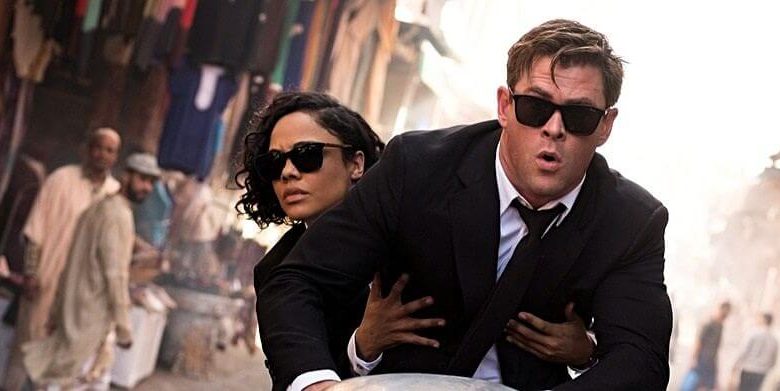‘MiB: International’ Almost Featured This Talking Point

When a film crashes at the box office a curious phenomenon take place. And quickly, mind you.
Hollywood news sites pounce, detailing why the film in question tanked in the first place. Insiders who might have stayed quiet had the movie thrived all of a sudden have plenty to say.
For “Dark Phoenix,” that meant chaotic behind-the-scenes tales tied to that X-flop.
Now, it’s “Men in Black: International’s” turn.
The film, a reboot/sequel/offshoot of the original trilogy, scored an anemic $30 million over the weekend. That’s a little more than half what “Men in Black 3” made seven years ago.
Let the second-guessing commence. And it did, specifically with a brutal account published June 17 at The Hollywood Reporter.
It’s an eye-opening look at the troubled project. The script endured a series of rewrites. The film’s leads took their turns tweaking dialogue to their liking. The director, F. Gary Gray of “Straight Outta Compton” fame, tried to bolt the project.
In a way, it’s a miracle it made $30 million – and, of course, $73 million overseas.
Franchise fatigue is hitting Hollywood this summer, with #MenInBlackInternational and #Shaft being the latest sequels largely ignored by audiences https://t.co/8nxe8RGC6j
— Variety (@Variety) June 16, 2019
The THR post mortem starts with a script described by several insiders as more than respectable. How else could you lure stars like Tessa Thompson and Chris Hemsworth, last seen tangling in “Thor: Ragnarok.”
What was all the fuss about?
Early drafts of the script were described as being edgier and more timely, tying the story to the current debate surrounding immigration. At one point, a music group a la The Beatles were to be the bad guys, with four people merging into one villain.
Now, we don’t technically know which side of the immigration debate the film would fall upon. Would the Men, and Women, in Black demand open borders, or a big, beautiful wall?
Anyone betting on the latter probably doesn’t have any spare cash at this point. And it wouldn’t come as a shock, either. Indie films routinely wear their progressive messages on their sleeve. The recent zom-com “The Dead Don’t Die” took clumsy swings at both fracking and the current Commander in Chief.
Small screen stories routinely argue for open-border policies. Shows like the new “Twilight Zone,” the rebooted “Roswell, New Mexico” and ABC’s “For the People.”
It shouldn’t shock anyone a mainstream film like ‘Men in Black: International” might do the same. It leaves one nagging question, though.
Why remove a theme pre-approved by Hollywood, Inc.?
Was it part of a behind-the-scenes power play? A quirk of the rewrites? Or, did the studio heads realize the narrative might be lost overseas, where franchises often make the most coin?
Either way, it won’t be the last lesson Hollywood delivers on immigration.
